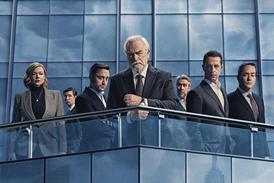Judgment in Sky trade mark saga clarifies both the law on bad faith registrations and the Supreme Court’s own remit. Brand owners must beware obtaining marks they have no intention of using
SkyKick is a Seattle-based startup supplier of software and services for managing the ‘cloud’ – the platform of interconnected invisible computer hardware which underpins much of the world’s economy. Sky is the household-name media conglomerate, formed by the 1990 merger of two satellite television stations and now a subsidiary of US giant Comcast.
Both businesses are proud of their brands. So when, nearly a decade or so ago, Sky’s IP guardians saw the light blue SkyKick logo, they sniffed trade mark infringement. In January 2016, they sent a letter before action. Proceedings began in May, alleging that SkyKick had infringed Sky’s trade marks and was passing off products and services as being connected with Sky. The broadcaster sought an injunction to prevent the startup from using the SkyKick mark in relation to email and cloud storage products and services, both carefully protected behind a thicket of Sky trade marks, both in the EU and the UK.
So far, so routine for a corporate giant’s brand protection team. But SkyKick denied infringement, maintaining it had done no more than make honest use of its own name. It counterclaimed that Sky’s marks were invalid as lacking clarity and precision – and that they had been made in bad faith.
Eight years of litigation followed, involving six court judgments spanning Brexit. The process culminated this week in a Supreme Court ruling which could have profound implications in the IP world. ‘This decision has certainly sent shockwaves throughout trade mark law,’ said Kerry Russell, partner at full-service firm Shakespeare Martineau.
In SkyKick UK Ltd and Anor v Sky Ltd and Ors, five Supreme Court justices agreed with the High Court that Sky acted in bad faith. In lead judgment, IP specialist Lord Kitchin (now retired from the bench) described the contested trade marks as ‘framed in very general terms’ and covering ‘an enormously wide range of goods and services’, including ‘computer software supplied from the internet’. The Court of Appeal was therefore wrong to reverse the High Court’s finding.
The timetable of the litigation, encompassing Brexit, created another, more general, issue for the Supreme Court: whether it retains any jurisdiction to deal with or decide issues concerning the validity or infringement of EU trade marks. Sky had contended that, as of the end of 2020, the ‘guillotine has come down’, and that the EU and UK trade mark regimes had gone forward independently. The judgment disagrees, finding that, despite withdrawal from the EU, the court can continue to determine the validity or invalidity of an EU trade mark including outside the UK.
It reveals that, as the judgment was being finalised, SkyKick, supported by Sky, applied for permission to withdraw its appeal following a settlement. However, after inviting comments from the comptroller-general of patents, Lord Kitchin found ‘compelling reasons to refuse’. These were that the application was made at a late stage, that the judgment involved issues of general public importance and that the UK Intellectual Property Office considered it desirable for the judgment to proceed.
Specialist IP lawyers were this week lining up to advise corporate clients on their trade mark strategy. ‘Brand owners, beware,’ said Fiona McBride, trade mark attorney at European IP firm Withers & Rogers, warning that other trade mark portfolios could face challenges under the ruling. While brand owners should of course consider the future trajectory of their business, they should think twice about obtaining marks for goods and services they have no intention of using. ‘As well as facing a bill for legal costs, the negative publicity caused by this could damage their brand and impact their market position.’
Sunny Kumar, partner at global law firm Ashurst, noted the findings in relation to EU law. ‘This decision is welcomed by IP practitioners as it reinforces which factors need to be determined to establish bad faith registrations and conforms to the basic principles of legal certainty when dealing with European Union trade marks so as to prevent identical cases being decided differently.’
As for the parties, SkyKick did not respond to an invitation to comment.
A Sky spokesperson said: ‘Sky, like many other businesses, historically filed a range of trade marks in accordance with relevant guidance available at the time. Today’s Supreme Court judgment concludes a lengthy legal process to clarify the correct application of the law. We acknowledge this clarification and will follow this moving forward.’
Just possibly, the broadcasting giant’s directors may wish they hadn’t kicked this particular can of worms.
This article is now closed for comment.



















![Eleanor Clarke - 029[8]](https://d1d8vslyhr7rdg.cloudfront.net/Pictures/274x183/1/5/1/120151_eleanorclarke0298_527574_crop.jpg)














4 Readers' comments